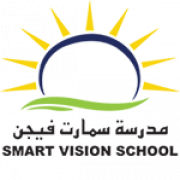

Smart Vision School
 Al Barsha 2
Al Barsha 2
 Al Barsha 2
Al Barsha 2
school rank
 Acceptable
Acceptable

Welcome to Smart Vision School
Our Mission
- A challenging curriculum that will prepare students for life as global leaders across Dubai and the UAE.
- Pastoral care that reflects Islamic values, UAE heritage and customs emphasising kindness, consideration, respect, honesty and good manners.
- Emphasising social responsibility, combining the school ethos with an understanding of Islam and other religions ensuring that our students are responsible citizens and future leaders.
Our Vision
Our vision aligns with the trends of the global economies, taking into consideration emerging regional and International changes which determine our mission and our values:
- Creativity - the phenomenon where something new, smart and valuable is created
- Innovation - the application of different solutions to resolve, existing challenges
- Challenge - a desire to question the status quo
- Social engagement - active participation in all school activities and life experiences
- Problem solving - developing a conscientious approach to finding solutions to real life problems
- Community - being a good and caring citizen, making a positive contribution to society.
Contact Info
Address: Al Barsha 2
Tel: +971 4 288 0965
Email: info@smartvisionschooldubai.com
